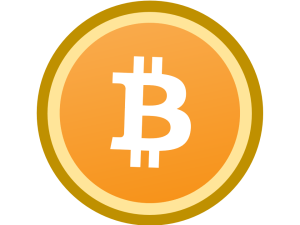A recent article by Forbes shows that Frontline Media Publications have started accepting the fact that Bitcoin is emerging as a leading option to help remittance market not just reduce cost but increase speed as well.
The blog post says:
The global economy spent approximately $44 billion last year on fees for remittances. Remittances—money sent from one country to another—most often goes to low-income households and is proven to reduce the overall poverty of a given nation. They also come with high transaction fees and long transfer delays—significant obstacles to people trying to pull themselves out of poverty.
From the outset, it appears crystal clear that new technologies like Bitcoin can serve the purpose well for those who cannot afford to pay hefty fees charged by the traditional payment processor. The blogger writes about the existing financial infrastructure and calls it is still in pre-Internet days that prevents the currency from traveling efficiently. However, he believes digital currency protocols are especially significant for global remittances. He particularly mentions Bitcoin which is being used by some technology startups to help alleviate the cost of remittances. Bitcoin being a peer-to-peer currency that works freely on the internet, helps people transfer money at reduced charges than the traditional banking methods.
How big is Remittance Market?
Mass unemployment, the huge income gap between developed and developing or under-developed nations has created a huge number of people who look for employment opportunities other than where they live. Today, workers’ remittances are a significant part of international capital flows, especially with regard to labor-exporting countries. This news report from Business Standardsays:
Remittances growth to slow sharply in 2015, as Europe and Russia stay weak; pick up expected next year. Total remittances in 2014 reached $583 billion. This is more than double the official development assistance (ODA) in the world. India received $70 billion, China $64 billion, the Philippines $28 billion. In line with the expected global economic recovery next year, the global flows of remittances are expected to accelerate by 4.1% in 2016, to reach an estimated $610 billion, rising to $636 billion in 2017. Remittance flows to developing countries are expected to recover in 2016 to reach $459 billion, rising to $479 billion in 2017.
Bitcoin is Fresh Air in the Exploitative Remittance Market
Some Bitcoin payment processing companies like Igot, Beam, BitPesa and BitX have spotted an opportunity to build Bitcoin businesses in Africa and other continents. As Forbes states:
A core cause of high fees for remittances is friction—money moves slowly and inefficiently from one country to another. Transferring money is expensive because there are limited connections between financial institutions and systems. Currently, we don’t have a neutral network to tie our disparate, siloed institutions together and move money cheaply and seamlessly.
Bitcoin can be a solution for people who may have to pay up to 10% of the total remittance. This is an exploitative system, particularly for those who are living on $2 or $3 a day.

Several Operating Models for Bitcoin Transactions
Even through digital, remittance remains deeply dependent on third parties as banks are still validating money transfers from senders to the remittance operator and again to recipients. Bitcoin allows customers have access to several operating models e.g. full Bitcoin, From Bitcoin to fiat currency, from fiat currency to fiat currency. The three different operating models that are available for customers are:
Full Bitcoin
This option is available or suitable only for those who are living in advanced/developed countries as the sender owns Bitcoins he sends to the recipient who can directly use them. The customers need to have access to e-wallets and exchange platforms like Coinbase in the US.
From Bitcoin to Fiat
This is the model that has huge prospects in the remittance market. The sender has an easy access to Bitcoins he sends to the remittance operator that sends fiat to the recipient. The fundamental assumption in this model is that developing countries have easy access to Bitcoins wallets but paying with Bitcoins is very limited especially in developing countries. The author of this story falls in this category.
From Fiat to Fiat
The sender pays its local money to the remittance operator that sends fiat to the recipient, using Bitcoins to transfer money from one currency to another.
Bitcoin is truly a game changer in the remmitence markets.
Source : http://bitcoinist.net/bitcoin-transforming-remittance-market-around-world/
Click on the bitcoin logo below to buy, use or accept bitcoin. Unocoin is India’s most popular bitcoin wallet.
To read the bitcoin white paper, visit: https://bitcoin.org/bitcoin.pdf







